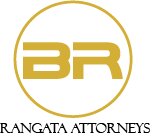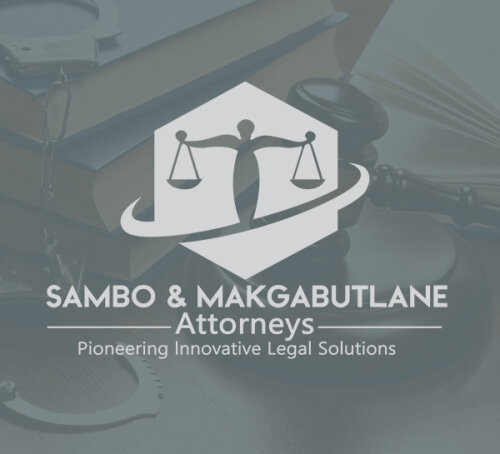Best Energy Regulatory Law Lawyers in Pretoria
Share your needs with us, get contacted by law firms.
Free. Takes 2 min.
List of the best lawyers in Pretoria, South Africa
About Energy Regulatory Law in Pretoria, South Africa
Energy Regulatory Law in Pretoria, South Africa, is a specialized legal field focused on the regulation, generation, distribution, and consumption of energy. This legal area covers a diverse range of issues spanning electricity, natural gas, nuclear energy, renewable energy sources, and energy efficiency programs. In South Africa, and Pretoria in particular, Energy Regulatory Law aims to ensure fair access to energy, regulate the cost and supply of power, promote sustainability, and protect both consumers and providers from unfair practices. The law also governs licensing, compliance, safety standards, and dispute resolution within the energy sector.
Why You May Need a Lawyer
A lawyer experienced in Energy Regulatory Law can assist with a wide spectrum of issues in Pretoria, South Africa. Individuals and businesses may need legal help if they are facing challenges such as applying for energy generation or distribution licenses, negotiations with service providers, changes in regulatory requirements, tariffs and pricing disputes, non-compliance allegations, purchasing land for energy projects, negotiating power purchase agreements, or dealing with environmental approvals. Legal assistance is also crucial during administrative hearings, regulatory investigations, or when facing penalties from regulatory authorities. In addition, lawyers play a vital role in helping companies navigate new government policies related to renewable energy and transformation of the energy sector.
Local Laws Overview
Pretoria, as part of South Africa, is subject to a comprehensive legislative and regulatory framework governing energy. The most significant law is the National Energy Regulator Act, 2004 which establishes the National Energy Regulator of South Africa (NERSA). NERSA regulates the electricity, piped-gas, and petroleum pipeline industries. The Electricity Regulation Act, 2006 controls the generation and distribution of electricity, while the Gas Act, 2001 governs the transmission and storage of gas. Additionally, the Energy Act, 2008, and environmental laws such as the National Environmental Management Act, 1998 also play key roles. Compliance with local bylaws in Pretoria, as well as municipal regulations on the use of renewable energy sources like solar panels, are equally vital. Energy projects in Pretoria must align with national policies, such as the Integrated Resource Plan and requirements that promote broad-based Black Economic Empowerment in the energy sector.
Frequently Asked Questions
What is energy regulatory law?
Energy Regulatory Law deals with the rules and policies that govern the production, distribution, and consumption of energy, including electricity, gas, and renewables. It ensures that the energy market operates fairly, efficiently, and sustainably.
Who is responsible for regulating energy in Pretoria?
The National Energy Regulator of South Africa (NERSA) is primarily responsible for regulating energy in Pretoria and across the country, including setting tariffs, granting licenses, and monitoring compliance.
What activities require a license from the energy regulator?
In Pretoria, you generally require a license from NERSA to generate, transmit, distribute, or trade electricity. Similar requirements exist for gas storage and distribution. There are some exemptions for small-scale or private energy generation.
How are electricity tariffs calculated?
Electricity tariffs in Pretoria are approved by NERSA, based on detailed applications from utilities like Eskom or local municipalities. The regulator considers costs, planned investments, operational efficiency, and fair pricing for consumers.
Can I install a solar power system in Pretoria without regulatory approval?
Small, off-grid domestic solar installations typically do not require NERSA licensing, but you must still comply with Pretoria’s municipal regulations and any national safety and environmental laws. Larger or grid-tied installations may require additional approvals.
What are common disputes in the energy sector?
Frequent disputes involve electricity billing, service quality, connection delays, power purchase agreements, and disagreements over regulatory compliance or tariff increases. These can be between consumers, municipalities, power producers, and other stakeholders.
What are penalties for non-compliance with energy laws?
Non-compliance can lead to fines, suspension or revocation of licenses, restrictions on business activities, and sometimes criminal prosecution, depending on the severity and nature of the violation.
How do energy laws promote renewable energy in Pretoria?
South African energy laws include provisions that encourage renewable energy, such as feed-in tariffs, procurement programs, and requirements for new developments to include a proportion of energy from clean sources. The government actively supports such growth through policy frameworks.
How does Black Economic Empowerment (BEE) affect energy projects?
BEE policies require energy businesses to promote the inclusion of historically disadvantaged South Africans through ownership, management, employment, and procurement practices. Compliance is often necessary to secure licenses or participate in major projects.
Where can I file a complaint about unfair energy practices?
Complaints can be submitted to NERSA for issues related to licensing, tariffs, or utility practices. Consumer complaints may also be handled by the municipal authority or the National Consumer Commission, depending on the matter.
Additional Resources
For anyone seeking further information or support in Energy Regulatory Law in Pretoria, consider reaching out to the following organizations and resources:
- National Energy Regulator of South Africa (NERSA) - primary regulatory body for electricity, gas, and pipeline industries
- Department of Mineral Resources and Energy - responsible for national energy policy and regulation
- Pretoria local municipal authority - handles permitting and implementation of energy projects within city limits
- National Consumer Commission - assists with consumer complaints related to energy services
- Renewable Energy Associations - industry groups which can provide guidance and resources for renewable energy projects
- South African Law Society - for referrals to qualified Energy Regulatory Law practitioners in Pretoria
Next Steps
If you need legal assistance in navigating Energy Regulatory Law in Pretoria, South Africa, start by assessing your specific issue and gathering any relevant documentation. Identify whether your concern relates to licensing, compliance, tariffs, environmental approvals, or a dispute with a service provider or the regulator. Next, consult with a legal professional who specializes in Energy Regulatory Law to get guidance tailored to your situation. Lawyers can help you understand your rights, responsibilities, and the processes involved. It is advisable to act promptly to ensure compliance with regulatory deadlines and to protect your interests in any litigation or negotiations. Finally, stay informed about developments in South African energy laws and local regulations, and make use of governmental or industry resources as needed.
Lawzana helps you find the best lawyers and law firms in Pretoria through a curated and pre-screened list of qualified legal professionals. Our platform offers rankings and detailed profiles of attorneys and law firms, allowing you to compare based on practice areas, including Energy Regulatory Law, experience, and client feedback.
Each profile includes a description of the firm's areas of practice, client reviews, team members and partners, year of establishment, spoken languages, office locations, contact information, social media presence, and any published articles or resources. Most firms on our platform speak English and are experienced in both local and international legal matters.
Get a quote from top-rated law firms in Pretoria, South Africa — quickly, securely, and without unnecessary hassle.
Disclaimer:
The information provided on this page is for general informational purposes only and does not constitute legal advice. While we strive to ensure the accuracy and relevance of the content, legal information may change over time, and interpretations of the law can vary. You should always consult with a qualified legal professional for advice specific to your situation.
We disclaim all liability for actions taken or not taken based on the content of this page. If you believe any information is incorrect or outdated, please contact us, and we will review and update it where appropriate.
















